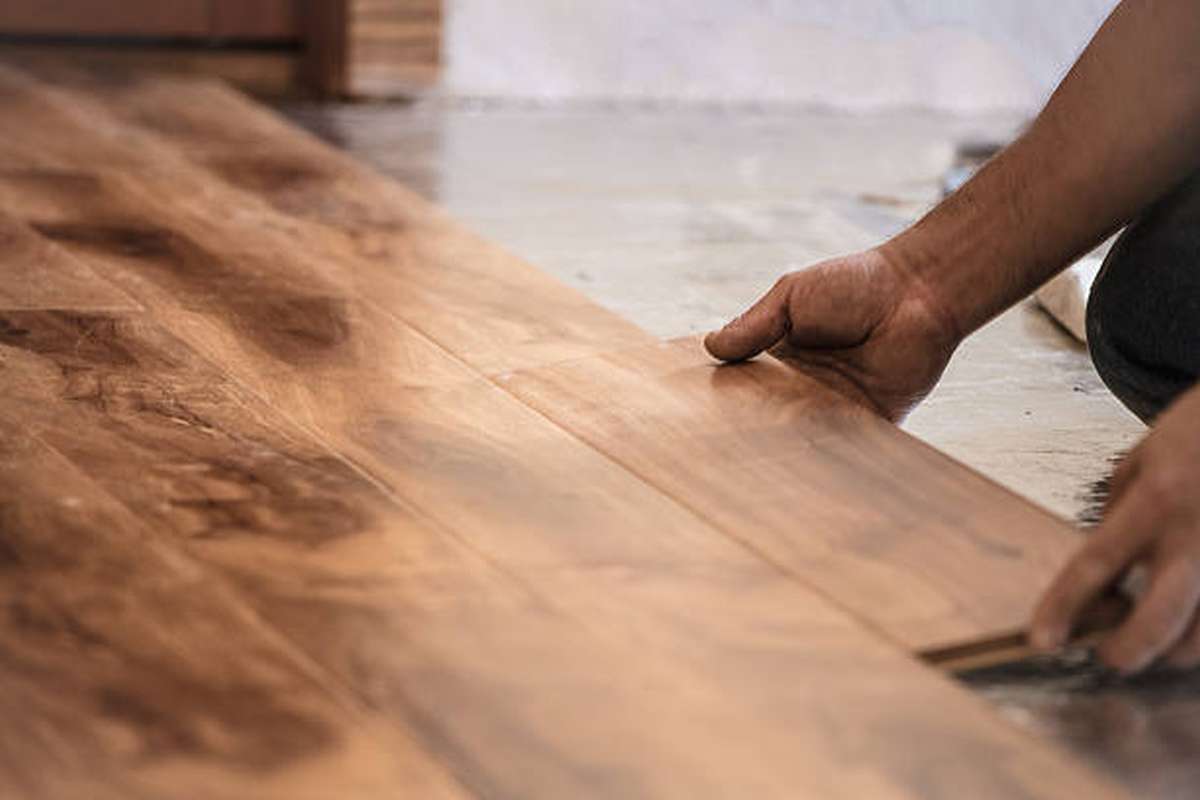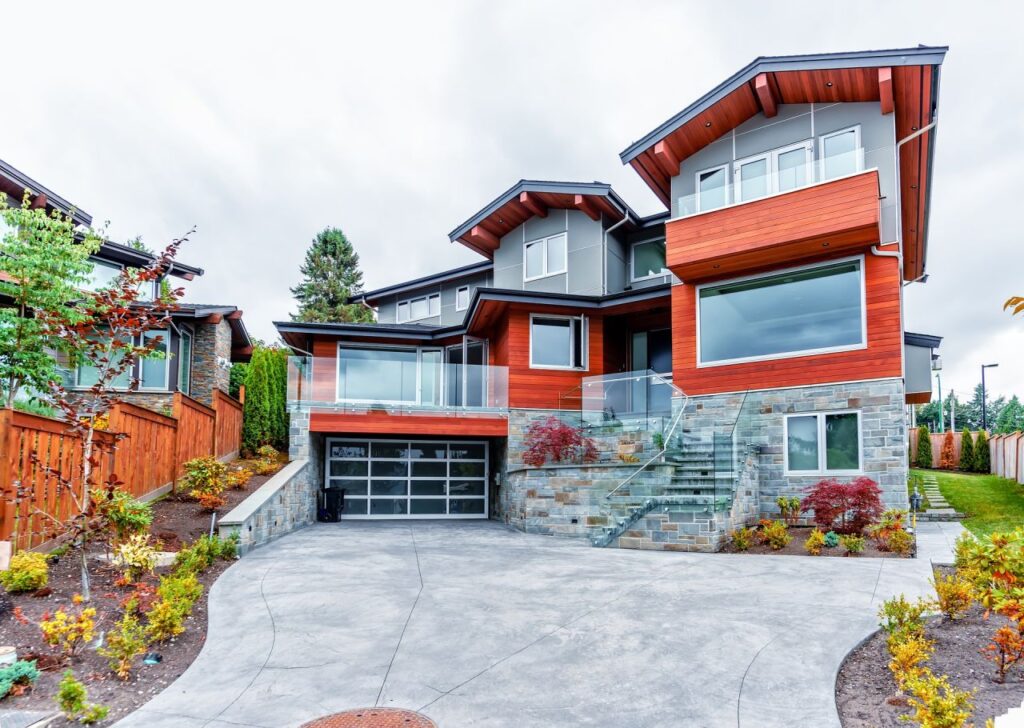The process of constructing a home is thrilling and demanding, but getting started can be difficult. Whether you're beginning from scratch or constructing an expansion, all the necessary considerations can seem overwhelming.
Before beginning construction on your dream home, you must first determine how much money you'll need, where you'll get it, what permits and regulations will apply, where you'll build, and who will design and build it.
Since there are numerous interdependent tasks involved in constructing a house, it's helpful to have everything ranked in order of importance. Read on for details on how to finish each segment of your journey.
5 Preparation Steps Before Building A New House
The construction of a new house starts shortly after the foundation is laid. If you take the time to make a detailed design and hire a reliable contractor, a building can be an exciting and rewarding experience.
Follow these five guidelines to ensure that you have a successful building project. Talk to folks who have transitioned from a dream home to an existing home, ask them questions, and share your experiences.
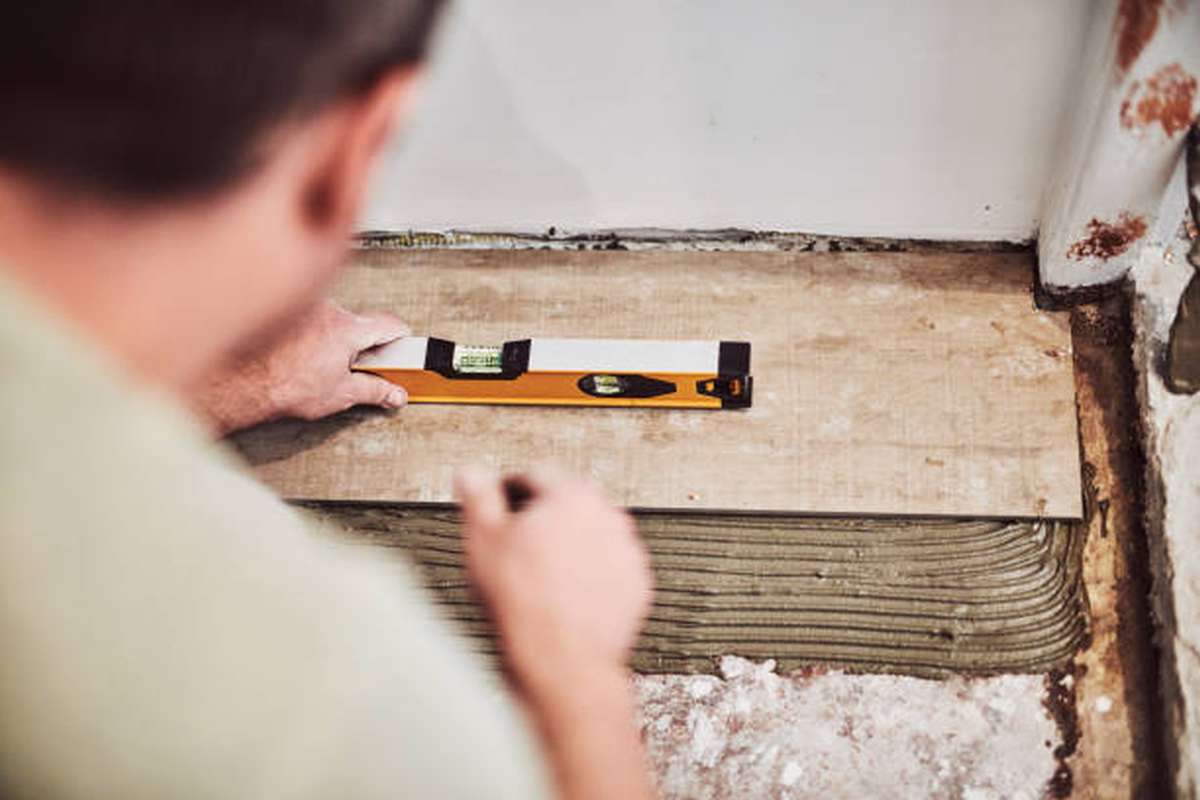
Make A Budget
The budget should be one of your first considerations when planning a home construction project. Create an accurate estimate of your budget and the total cost of constructing a new house. While creating a budget, it's important to consider both your wants and your ability to pay for them.
Both mortgage and construction financing will likely be required. Determine how much of a loan you may be eligible for based on your current income or other financial commitments. By getting prequalified for a construction loan, a service offered by most banks and other financial organisations today, you can get a rough estimate of how much money you have to spend.
At the same time, you should begin researching the property prices, the architects or designer, the contractor who will oversee the project, your construction materials, the appliances and interior amenities at this early stage.
This is a lengthy and intricate process that should start well before any building is done. Before signing a contract agreement with a builder, it's also not uncommon to spend as much as two years researching the concerns.
Budgeting Suggestions
- Banks who try to provide you with a loan that you can't afford are a major cause of the financial crisis that hit the world in 2008. There is no point in constructing a home that costs as much as the loan limit permitted by the bank. It is highly recommended that you spend significantly less than that. An objective financial counsellor is an excellent resource for figuring out how much money you have available to put towards a new home.
- Anticipate a rise in expenses. Almost always, the final construction cost exceeds the budgeted amount. Whether it's due to fluctuating material prices or modifications you make during construction, this is a common occurrence. It's important to leave some wiggle room in your budget for unexpected costs.
- Collect bids from at least three businesses (and check references). The cost of hiring a general contractor (GC) to oversee the project and coordinate the efforts of several tradespeople and suppliers can add up quickly. Choosing a contractor is a balancing act between cost and the assurance of high-quality service and materials. First, talk to people that know who are happy with their builder to acquire recommendations, and then thoroughly evaluate at least three of them. If you follow these steps, you should have a fair sense of how much it will cost to construct your home.
- Do some shopping for supplies. The general contractor may choose most fixtures, fittings, and furnishings, but you should still have input. Make a mental note of your preferences now, such as your fondness for granite countertops, and share them with the builder you end up hiring.
Constructing A New Home Has Hidden Expenses
The unforeseen expenses of home ownership frequently come as a shock to first-time buyers.
The initial investment in a new home is substantial, with furnishings, lawn and garden tools, window coverings, and Internet and media cabling.
If you're not ready for them, regular homeownership costs like insurance, taxes, and maintenance may add up over a year. These costs may be a huge shock if you have been a tenant up until now.
Choose Your Lot
Talk to real estate agents to acquire a ballpark figure for the price of land in the locations you're thinking about if you haven't already. Land prices are highly context-dependent.
Whether you're looking to build in a suburban community or a location with breathtaking beach views, you'll need to select the land first. Soil quality, drainage, zoning, & building codes are just some of the issues you and any professionals you hire will need to look into. If you want your home to fit your lot precisely, expect to pay more. It will be easier on your wallet if the home can be constructed on the land using already house plans.
Choose A Floor Plan
Stock designs are used in the construction of many newly constructed residences. Finding the best approach could take some time. Choosing your prefered architectural style could be a good starting point. Browse the various catalogues for inspiration, then enlist the aid of a builder or other construction expert to assist you in selecting the most suitable stock plan. Room sizes, window types, and other characteristics can be tweaked somewhat by a house designer using the stock floor plans as a starting point. Modifications of stock home plans may be possible for some builders.
On the other hand, a custom-designed house is built with the future residents and the lot in mind from the beginning. It is recommended to hire an architect when starting from scratch. Among their concerns are "What does the Sun do when it rises? Where do the heaviest winds usually come from? What are some methods that can be used to lower HVAC costs permanently?"
The architect needs to ask detailed questions to get to know you and what you like.
Whether you choose a pre-made template or create something unique, it's important to pick a plan that can evolve with your business as it grows. A young couple might want to prepare their home for a growing family, while an older adult living alone in a house should think about their future requirements as they age in place.
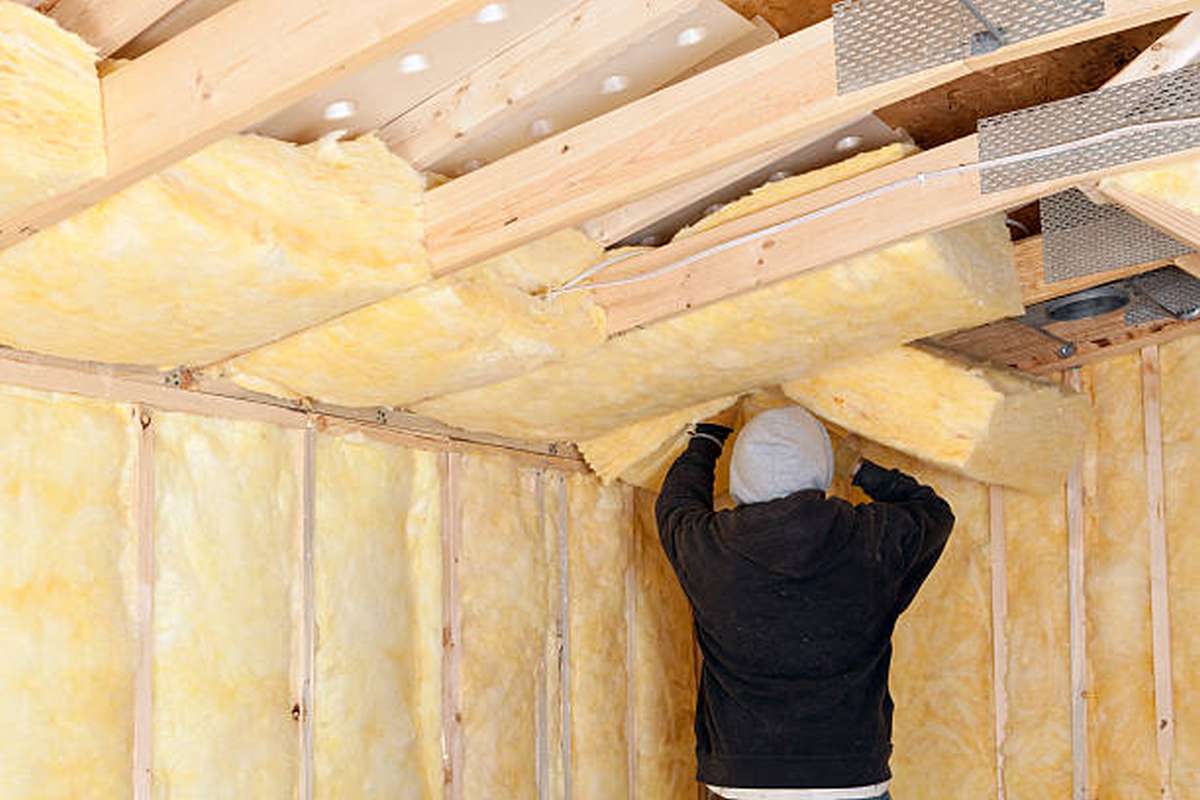
Prepare Your Team
Gathering a team of specialists to build and design your home is the next step after settling on a budget, a building location, and a home design. A team of experts may include a digger, a surveyor, a home designer, and sometimes even an architect. The first step for most homeowners is to choose a construction company (general contractor).
The rest of the team is chosen by that expert. On the other hand, you may jump right to hiring an architect or designer.
The crucial query is, to what extent will you be able to participate in this process? While most homeowners employ a contractor to oversee the majority of the project, a hands-on homeowner can take up the role of GC themselves.
All the excavators, carpenters, concrete workers, and so on will be hired and supervised by you. Although this construction method is difficult for the faint of heart, it may be extremely gratifying for the appropriate person, not to mention cost-effective.
What About Nontraditional Buildings?
The building process need not correspond to the aesthetic goals of the homeowner. You're not limited to the tried-and-true method of using a frame. Straw-bale homes, rammed-earth buildings, and even cob homes have recently attracted a lot of attention.
Yet, not all traditional builders (or even architects) would know in every field. It takes a crew with experience in that field to build a traditional house unconventionally. It's important to research and hire a competent architect and builder to bring your project to fruition.
Contract Negotiation
Be sure you have signed contracts with every specialist who will be working on your home. This necessitates a written agreement with the builder or general contractor and, if applicable, a home designer or architect.
The components of a construction agreement. Specs, or a detailed description of the home's features, will be included in a contract for new home building. Without such specifics, your home may be constructed with less expensive "builder's grade" components.
Before writing the contract, ensure all specifications have been discussed and agreed upon. Whether you or your contractors decide to make changes to the project down the road, be sure to add an amendment to the contract.
5 Ideas For Selecting The Best Home Construction Design
Many people enter the housing market by purchasing an already-constructed dwelling, such as an apartment, condominium, or single-family home in a boring neighbourhood. Nonetheless, many people, particularly those seeking advancement, want to buy a newly constructed home.
To buy or not to buy new construction?Considering all the options available today, picking the perfect house plan can be difficult.After all, you can't exactly drive by to check out the house. Thus, with that in mind, here is our advice on how to pick the best house plan.
Make A List Of Your Requirements.
The first piece of advice we can give is to have a firm grasp on exactly what it is you want.
Everyone has their own set of standards. Some people may want a sizable yard, while others may require an additional bedroom to accommodate a growing family. Know what you care about most before you begin exploring your possibilities.
Consider The Sell-On Value.
Keep in mind that the house is an investment. One that you may potentially sell down the road. Even if you don't put much thought into how your kitchen looks, potential buyers probably will.
Remember That It Will Appear Differently In Reality.
Though helpful, drawings, blueprints, and models are still just artists' conceptions of what the finished home would look like. Remember this while you consider other options.
See Similar Constructions
Before spending money, it's smart to research other projects with a similar layout, ideally from the same developer. This will assist you in solidifying the idea in your head and give you faith that the developer will follow through on their promises.
Maintain Your Budget
Don't deviate from your planned expenditures once you've settled on a particular style. While an extra bedroom would be nice, it's better to stay within your financial means and avoid taking on unnecessary debt than to overextend yourself financially. Remember that this is just the first step, and that as the value of your current home rises, you'll have no trouble moving up again.
Conclusion
The process of constructing a home is exciting and demanding, but getting started can be difficult. Before beginning construction, it is important to determine how much money you'll need, where you'll get it, what permits and regulations will apply, where you'll build, and who will design and build it. Five preparation steps before building a new house include making a detailed design and hiring a reliable contractor, creating a budget, researching property prices, architects or designers, the contractor who will oversee the project, construction materials, appliances and interior amenities, and getting prequalified for a construction loan. Researching the property prices, architects or designers, the contractor who will oversee the project, construction materials, appliances and interior amenities is a lengthy and intricate process that should start well before any building is done. Before signing a contract agreement with a builder, it is not uncommon to spend as much as two years researching the concerns.
This is important because it helps to solidify the idea in your head and give you faith that the developer will follow through on their promises. Additionally, it helps to stay within your financial means and avoid taking on unnecessary debt than to overextend yourself financially.
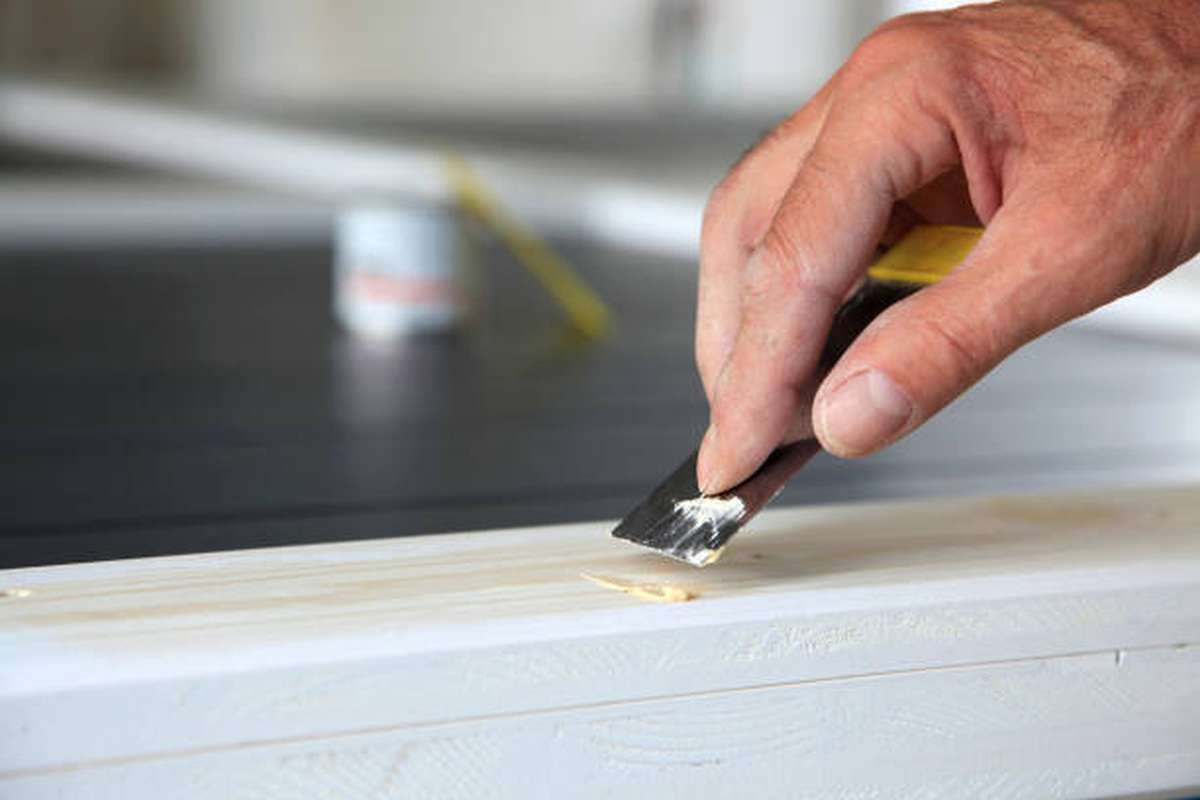
Content Summary:
- The process of constructing a home is thrilling and demanding, but getting started can be difficult.
- Whether you're beginning from scratch or constructing an expansion, all the necessary considerations can seem overwhelming.
- Before beginning construction on your dream home, you must first determine how much money you'll need, where you'll get it, what permits and regulations will apply, where you'll build, and who will design and build it.
- Since there are numerous interdependent tasks involved in constructing a house, it's helpful to have everything ranked in order of importance.
- If you take the time to make a detailed design and hire a reliable contractor, a building can be an exciting and rewarding experience.
- Follow these five guidelines to ensure that you have a successful building project.
- Talk to folks who have transitioned from a dream home to an existing home, ask them questions, and share your experiences.
- The budget should be one of your first considerations when planning a home construction project.
- Create an accurate estimate of your budget and the total cost of constructing a new house.
- While creating a budget, it's important to consider both your wants and your ability to pay for them.
- Both mortgage and construction financing will likely be required.
- Determine how much of a loan you may be eligible for based on your current income or other financial commitments.
- By getting prequalified for a construction loan, a service offered by most banks and other financial organisations today, you can get a rough estimate of how much money you have to spend.
- At the same time, you should begin researching the property prices, the architects or designer, the contractor who will oversee the project, your construction materials, the appliances and interior amenities at this early stage.
- This is a lengthy and intricate process that should start well before any building is done.
- Before signing a contract agreement with a builder, it's also not uncommon to spend as much as two years researching the concerns.
- Banks who try to provide you with a loan that you can't afford are a major cause of the financial crisis that hit the world in 2008.
- There is no point in constructing a home that costs as much as the loan limit permitted by the bank.
- It is highly recommended that you spend significantly less than that.
- An objective financial counsellor is an excellent resource for figuring out how much money you have available to put towards a new home.
- Almost always, the final construction cost exceeds the budgeted amount.
- Whether it's due to fluctuating material prices or modifications you make during construction, this is a common occurrence.
- It's important to leave some wiggle room in your budget for unexpected costs.
- Collect bids from at least three businesses (and check references).
- The cost of hiring a general contractor (GC) to oversee the project and coordinate the efforts of several tradespeople and suppliers can add up quickly.
- Choosing a contractor is a balancing act between cost and the assurance of high-quality service and materials.
- First, talk to people that know who are happy with their builder to acquire recommendations, and then thoroughly evaluate at least three of them.
- If you follow these steps, you should have a fair sense of how much it will cost to construct your home.
- The general contractor may choose most fixtures, fittings, and furnishings, but you should still have input.
- Make a mental note of your preferences now, such as your fondness for granite countertops, and share them with the builder you end up hiring.
- The unforeseen expenses of home ownership frequently come as a shock to first-time buyers.
- The initial investment in a new home is substantial, with furnishings, lawn and garden tools, window coverings, and Internet and media cabling.
- If you're not ready for them, regular homeownership costs like insurance, taxes, and maintenance may add up over a year.
- These costs may be a huge shock if you have been a tenant up until now.
- Talk to real estate agents to acquire a ballpark figure for the price of land in the locations you're thinking about if you haven't already.
- Whether you're looking to build in a suburban community or a location with breathtaking beach views, you'll need to select the land first.
- Soil quality, drainage, zoning, & building codes are just some of the issues you and any professionals you hire will need to look into.
- If you want your home to fit your lot precisely, expect to pay more.
- It will be easier on your wallet if the home can be constructed on the land using already house plans.
- Stock designs are used in the construction of many newly constructed residences.
- Finding the best approach could take some time.
- Choosing your prefered architectural style could be a good starting point.
- Browse the various catalogues for inspiration, then enlist the aid of a builder or other construction expert to assist you in selecting the most suitable stock plan.
- Room sizes, window types, and other characteristics can be tweaked somewhat by a house designer using the stock floor plans as a starting point.
- Modifications of stock home plans may be possible for some builders.
- On the other hand, a custom-designed house is built with the future residents and the lot in mind from the beginning.
- It is recommended to hire an architect when starting from scratch.
- Among their concerns are "What does the Sun do when it rises?
- Where do the heaviest winds usually come from?
- What are some methods that can be used to lower HVAC costs permanently?"The architect needs to ask detailed questions to get to know you and what you like.
- Whether you choose a pre-made template or create something unique, it's important to pick a plan that can evolve with your business as it grows.
- A young couple might want to prepare their home for a growing family, while an older adult living alone in a house should think about their future requirements as they age in place.
- Gathering a team of specialists to build and design your home is the next step after settling on a budget, a building location, and a home design.
- A team of experts may include a digger, a surveyor, a home designer, and sometimes even an architect.
- The first step for most homeowners is to choose a construction company (general contractor).
- The crucial query is, to what extent will you be able to participate in this process?
- While most homeowners employ a contractor to oversee the majority of the project, a hands-on homeowner can take up the role of GC themselves.
- All the excavators, carpenters, concrete workers, and so on will be hired and supervised by you.
- Although this construction method is difficult for the faint of heart, it may be extremely gratifying for the appropriate person, not to mention cost-effective.
- The building process need not correspond to the aesthetic goals of the homeowner.
- You're not limited to the tried-and-true method of using a frame.
- Straw-bale homes, rammed-earth buildings, and even cob homes have recently attracted a lot of attention.
- Yet, not all traditional builders (or even architects) would know in every field.
- It takes a crew with experience in that field to build a traditional house unconventionally.
- It's important to research and hire a competent architect and builder to bring your project to fruition.
- Be sure you have signed contracts with every specialist who will be working on your home.
- This necessitates a written agreement with the builder or general contractor and, if applicable, a home designer or architect.
- The components of a construction agreement.
- Specs, or a detailed description of the home's features, will be included in a contract for new home building.
- Without such specifics, your home may be constructed with less expensive "builder's grade" components.
- Before writing the contract, ensure all specifications have been discussed and agreed upon.
- Whether you or your contractors decide to make changes to the project down the road, be sure to add an amendment to the contract.
- Nonetheless, many people, particularly those seeking advancement, want to buy a newly constructed home.
- To buy or not to buy new construction?Considering all the options available today, picking the perfect house plan can be difficult.
- The first piece of advice we can give is to have a firm grasp on exactly what it is you want.
- Everyone has their own set of standards.
- Some people may want a sizable yard, while others may require an additional bedroom to accommodate a growing family.
- Know what you care about most before you begin exploring your possibilities.
- Keep in mind that the house is an investment.
- One that you may potentially sell down the road.
- Even if you don't put much thought into how your kitchen looks, potential buyers probably will.
- Though helpful, drawings, blueprints, and models are still just artists' conceptions of what the finished home would look like.
- Remember this while you consider other options.
- Before spending money, it's smart to research other projects with a similar layout, ideally from the same developer.
- This will assist you in solidifying the idea in your head and give you faith that the developer will follow through on their promises.
- Don't deviate from your planned expenditures once you've settled on a particular style.
- While an extra bedroom would be nice, it's better to stay within your financial means and avoid taking on unnecessary debt than to overextend yourself financially.
- Remember that this is just the first step, and that as the value of your current home rises, you'll have no trouble moving up again.
